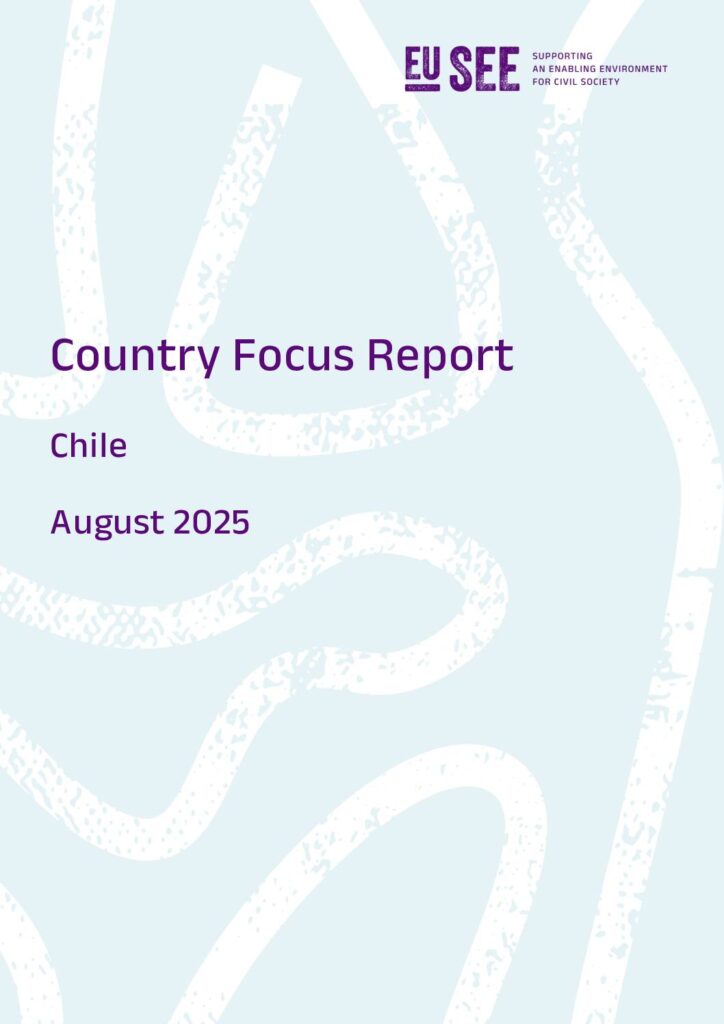Civil society in Chile remains a key democratic actor. More than 400,000 CSOs are active across the country, reflecting strong traditions of grassroots organising and community participation. However, trust in the sector has been severely undermined by the Caso Convenios corruption scandal, which exposed the misappropriation of public funds. The scandal triggered stricter funding controls and widespread financial strain, making it increasingly difficult for CSOs to access resources from both public and private sectors. Many organisations have been forced to reduce staff, cut programmes, or shut down entirely, exposing the fragility of the funding system.
Despite these challenges, Chile maintains an open and rights-respecting digital environment, supported by legal protections and limited government interference. This online space allows civil society to operate and express itself freely, although political and social tensions persist, fuelling mistrust toward certain actors.
While freedoms of expression, assembly, and association are guaranteed by law, their implementation remains uneven. The legal framework governing CSOs, although solid on paper, creates significant bureaucratic obstacles. Smaller and grassroots organisations face challenges in registration and banking, while ambiguous criteria create risks of arbitrary exclusion.
Participation mechanisms such as COSOCs exist nationwide but remain largely symbolic. They are infrequently convened and rarely influence policy outcomes. Despite recent improvements to the Transparency Law, accountability processes remain weak, and public consultations often fail to translate into concrete results.
Meanwhile, growing political polarisation and social tensions continue to shape public discourse. Mistrust of CSOs has deepened, with advocacy groups working on Indigenous rights and gender equality facing heightened scrutiny.
Nonetheless, Chilean civil society demonstrates remarkable resilience and continues to play a vital role in defending democracy and driving social change.
Key recommendations include calls to:
- Strengthen and simplify public funding mechanisms for civil society, particularly for grassroots and emerging organisations.
- Reinforce participation mechanisms by making COSOCs and public consultations more binding, diverse, and representative.
- Diversify funding sources and reduce dependence on short-term, project-based funds.
- Broaden the inclusion of youth, Indigenous peoples, and rural voices in national advocacy agendas.
- Strengthen coordination and alliances, especially between national and local groups, to collectively advocate and exchange resources and knowledge.
Espanol
La sociedad civil en Chile sigue siendo un actor democrático clave. Más de 400.000 OSC están activas en todo el país, reflejando fuertes tradiciones de organización de base y participación comunitaria. Sin embargo, la confianza en el sector se ha visto gravemente socavada por el escándalo de corrupción del Caso Convenios, que expuso el uso indebido de fondos públicos. El escándalo desencadenó controles de financiamiento más estrictos y una amplia presión financiera, lo que ha dificultado cada vez más que las OSC accedan a recursos tanto del sector público como del privado. Muchas organizaciones se han visto obligadas a reducir personal, recortar programas o cerrar por completo, evidenciando la fragilidad del sistema de financiamiento.
A pesar de estos desafíos, Chile mantiene un entorno digital abierto y respetuoso de los derechos, respaldado por protecciones legales y con una limitada interferencia gubernamental. Este espacio en línea permite que la sociedad civil opere y se exprese libremente, aunque persisten tensiones políticas y sociales que alimentan la desconfianza hacia ciertos actores.
Si bien las libertades de expresión, reunión y asociación están garantizadas por ley, su aplicación sigue siendo desigual. El marco legal que regula a las OSC, aunque sólido en el papel, genera importantes obstáculos burocráticos. Las organizaciones más pequeñas y de base enfrentan dificultades en los procesos de registro y bancarización, mientras que criterios ambiguos crean riesgos de exclusión arbitraria.
Mecanismos de participación como los COSOC existen a nivel nacional, pero siguen siendo en gran medida simbólicos. Se convocan con poca frecuencia y rara vez influyen en los resultados de las políticas. A pesar de las mejoras recientes a la Ley de Transparencia, los procesos de rendición de cuentas siguen siendo débiles y las consultas públicas a menudo no se traducen en resultados concretos.
Mientras tanto, la creciente polarización política y las tensiones sociales continúan moldeando el discurso público. La desconfianza hacia las OSC se ha profundizado, y los grupos de incidencia que trabajan en derechos indígenas e igualdad de género enfrentan un mayor escrutinio.
A pesar de estos desafíos, la sociedad civil chilena demuestra una notable resiliencia y continúa desempeñando un papel vital en la defensa de la democracia y la promoción del cambio social.
Las recomendaciones clave incluyen:
- Fortalecer y simplificar los mecanismos de financiamiento público para la sociedad civil, particularmente para las organizaciones de base y emergentes.
- Reforzar los mecanismos de participación, haciendo que los COSOC y las consultas públicas sean más vinculantes, diversos y representativos.
- Diversificar las fuentes de financiamiento y reducir la dependencia de fondos de corto plazo basados en proyectos.
- Ampliar la inclusión de juventudes, pueblos indígenas y voces rurales en las agendas nacionales de incidencia.
- Fortalecer la coordinación y las alianzas, especialmente entre grupos nacionales y locales, para abogar colectivamente e intercambiar recursos y conocimientos.
Enabling principles scores

